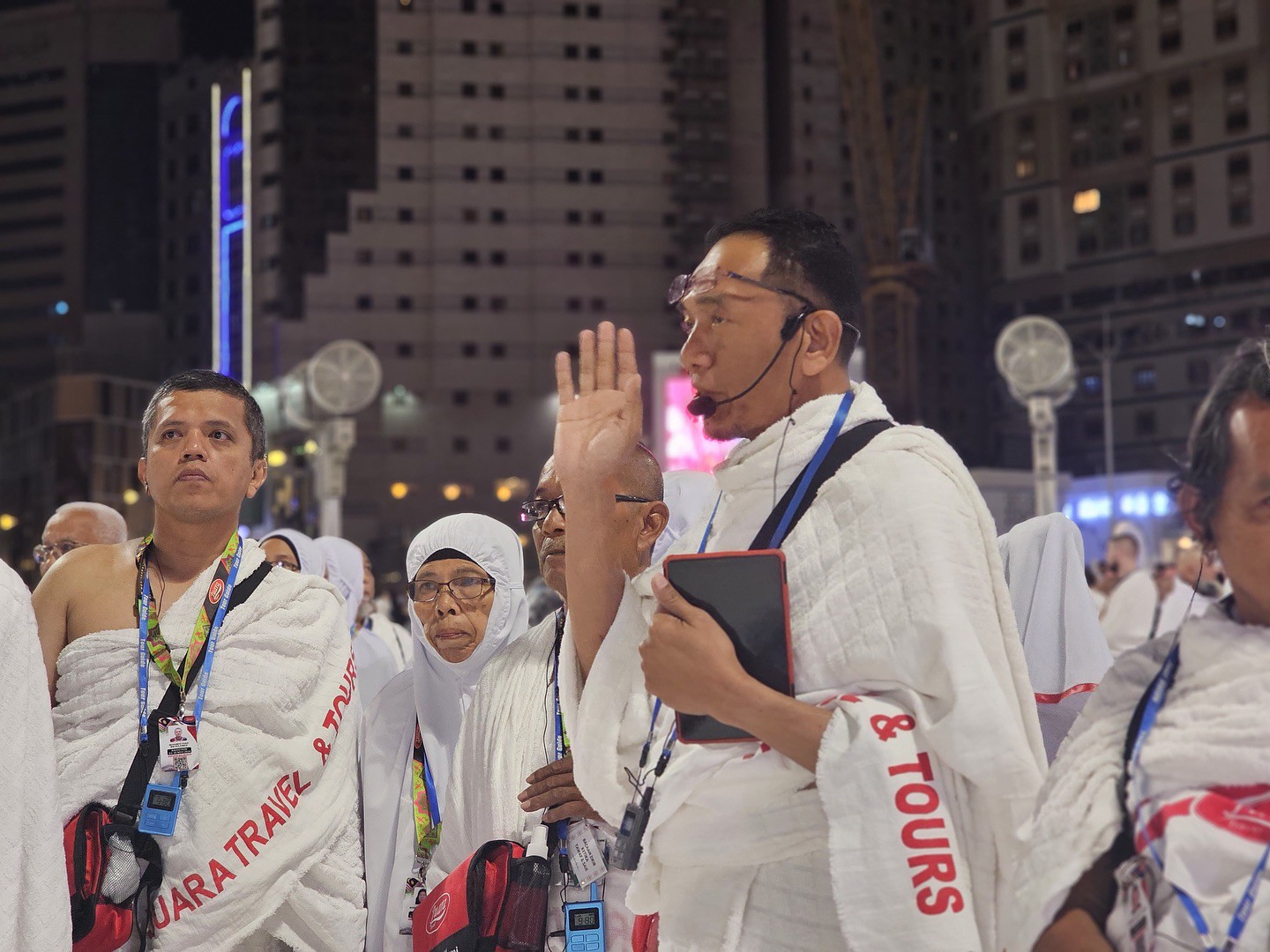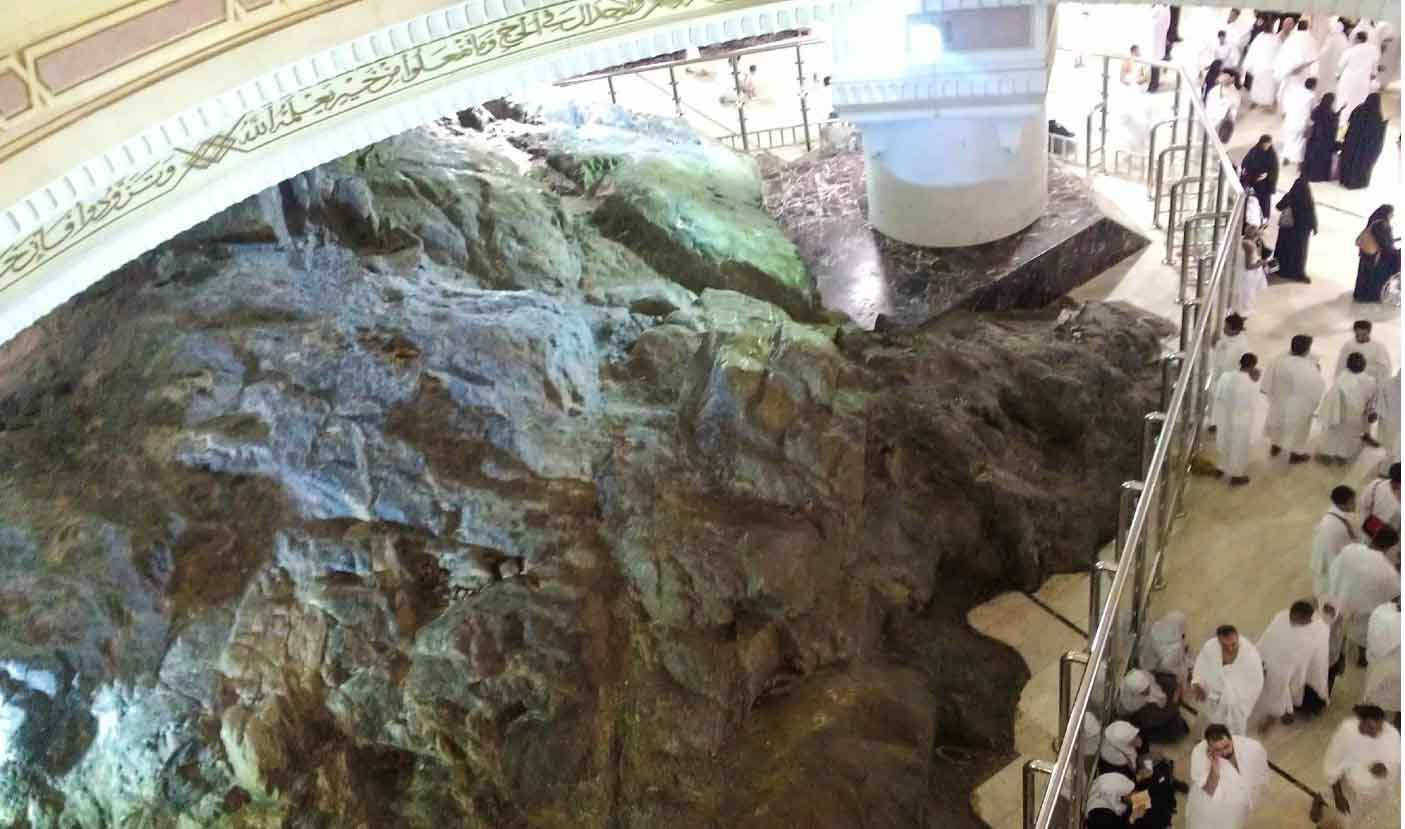As a non-Muslim, you may have heard about Umrah and Hajj, two of the most important religious practices in Islam. These pilgrimages are significant not only for the millions of Muslims who undertake them each year but also because they offer insights into the spiritual and cultural aspects of the Muslim faith. Over the past five to six years, through our involvement in providing Umrah and Hajj travel merchandise, we've gained a deeper understanding of these pilgrimages. In this article, we will explore what Umrah and Hajj are, how they differ, and why they are such vital experiences for Muslims around the world.
What is Hajj?
Hajj is one of the Five Pillars of Islam, making it a fundamental religious obligation for Muslims. Every Muslim who is physically and financially able is required to perform Hajj at least once in their lifetime. It is a pilgrimage to Mecca, the holiest city in Islam, located in Saudi Arabia, and it takes place annually during the Islamic month of Dhul-Hijjah.
The journey is not just a physical one, but a deeply spiritual experience. For many Muslims, Hajj is seen as a way to purify oneself, seek forgiveness for past sins, and renew their relationship with God.
Key Rituals of Hajj:
Ihram: Before entering Mecca, pilgrims wear a simple white garment called Ihram. This uniformity in dress symbolizes purity, equality, and the shedding of worldly distractions.
Tawaf: Pilgrims begin by walking seven times around the Kaaba, a black cube-shaped structure at the center of the Masjid al-Haram, the Grand Mosque in Mecca. This act symbolizes the unity of believers in the worship of the One God.
Arafat: On the 9th day of Dhul-Hijjah, pilgrims travel to Mount Arafat, where they spend the day in prayer and supplication. It is believed that the prayers made here are especially significant and that this is the day Allah forgives the sins of those who sincerely repent.
Stoning of the Jamarat: Pilgrims throw small stones at three pillars, symbolizing the rejection of temptation by the devil, an act commemorating Prophet Ibrahim's (Abraham's) rejection of Satan's attempts to dissuade him from following God's command.
Animal Sacrifice: In remembrance of the willingness of Prophet Ibrahim to sacrifice his son for God, many pilgrims perform an animal sacrifice, often a sheep, goat, or cow.

For Muslims, Hajj is a once-in-a-lifetime opportunity to seek spiritual renewal and to experience the unity of the global Muslim community. Despite the challenges, including large crowds and the physically demanding rituals, it is a deeply transformative journey.
What is Umrah?
Unlike Hajj, Umrah is not obligatory but is still a highly significant pilgrimage in Islam. It can be performed at any time of the year, although it is particularly popular during the holy month of Ramadan. Although it shares several rituals with Hajj, Umrah is much shorter and less complex. It is often referred to as the "lesser pilgrimage."
Key Rituals of Umrah:
Ihram: Similar to Hajj, pilgrims don Ihram before entering Mecca, signaling the start of their pilgrimage.
Tawaf: Pilgrims walk around the Kaaba, but this is a shorter ritual than the one performed during Hajj.
Sa'i: Pilgrims walk between the hills of Safa and Marwah, symbolizing the search for water by Hagar, the wife of Prophet Ibrahim, as she looked for water for her son, Isma'il.
Shaving or Trimming Hair: After completing the Tawaf and Sa'i rituals, male pilgrims typically shave their heads or trim their hair, while women cut a small portion of their hair.

Although Umrah does not carry the same weight as Hajj, it still offers Muslims the chance to seek spiritual purification and to renew their connection with God. Many Muslims perform Umrah during Ramadan, as it is believed that the rewards of the pilgrimage are multiplied during this sacred month.
The Key Differences Between Hajj and Umrah
While both Hajj and Umrah are pilgrimages to Mecca and share some common rituals, there are several important differences between the two:
Obligation vs. Voluntary:
Hajj is an obligatory pilgrimage that every Muslim must perform at least once in their lifetime, provided they meet certain financial and physical criteria.
Umrah, however, is voluntary. Muslims can perform it at any time of the year.
Timing:
Hajj takes place during specific dates in the Islamic month of Dhul-Hijjah. The dates are fixed each year.
Umrah can be performed at any time of the year, offering more flexibility.
Rituals and Duration:
Hajj involves more complex rituals, such as the standing at Arafat, stoning of the Jamarat, and animal sacrifice, and typically lasts several days.
Umrah is shorter, with fewer rituals, and can be completed in a day or less.
Spiritual Significance:
Hajj is one of the Five Pillars of Islam and carries a higher level of spiritual significance.
Umrah is highly rewarding but is seen as a way to renew one's faith and seek forgiveness, rather than a religious obligation.
Why Are These Pilgrimages Important?
For Muslims, both Hajj and Umrah offer more than just a physical journey. These pilgrimages are deeply spiritual experiences that bring them closer to God and allow them to seek forgiveness for their past sins. They also symbolize unity, as millions of Muslims from around the world come together in Mecca, regardless of race, nationality, or social status.
Hajj, in particular, is a pivotal event in the life of a Muslim, often seen as a culmination of their spiritual journey. It is believed that performing Hajj wipes away previous sins, allowing the pilgrim to return spiritually renewed.
Umrah, while optional, offers a way for Muslims to strengthen their faith and gain spiritual rewards. It is seen as a chance for personal reflection and renewal.
Conclusion: A Journey of Faith, Purification, and Unity
For Muslims, Hajj and Umrah are not just physical pilgrimages; they are profound spiritual journeys that offer the opportunity for purification, repentance, and connection with the divine. Whether it is the once-in-a-lifetime obligation of Hajj or the voluntary pilgrimage of Umrah, both experiences are integral to the lives of millions of Muslims around the world.
As a non-Muslim who has had the privilege of working in the Umrah and Hajj travel merchandise industry, I have gained a deep respect and understanding of the significance these pilgrimages hold. Learning about these sacred journeys not only enhances my understanding of Islam but also underscores the powerful spiritual connections they foster among Muslims worldwide.
If you're interested in learning more about the items needed for Hajj and Umrah, visit our Hajj & Umrah travel merchandise section to ensure you have everything you need for a smooth pilgrimage experience.




